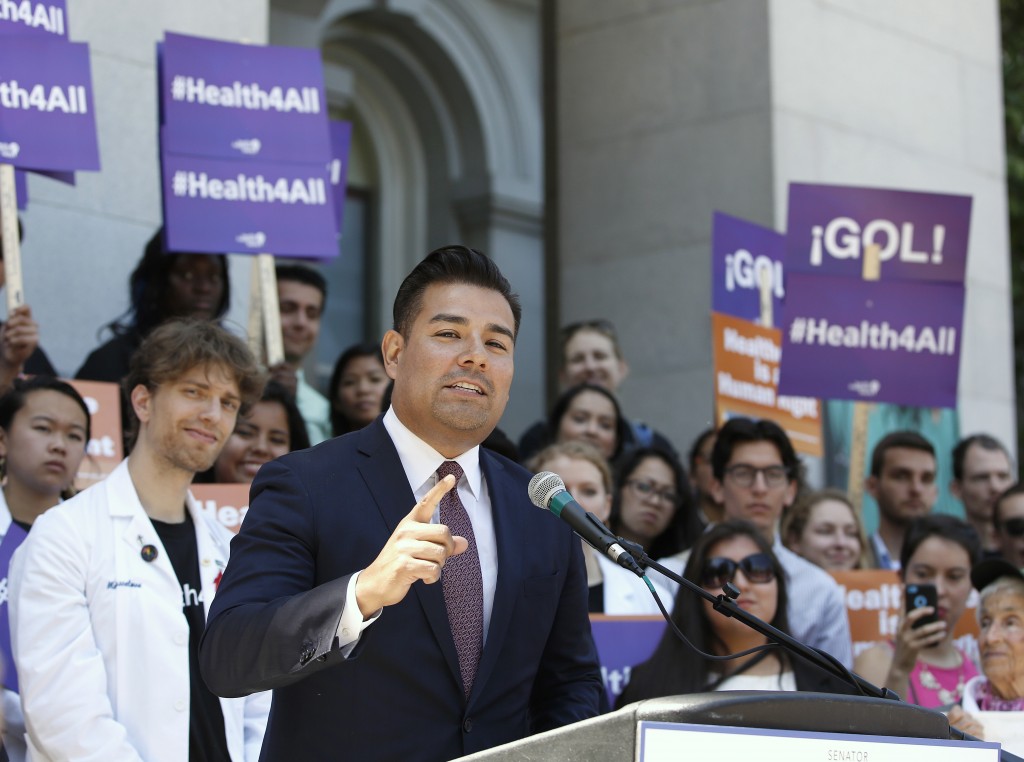
This week, more than 170,000 undocumented children became eligible to enroll in state-funded health insurance plans in California, going beyond Obamacare to allow more immigrants to have access to comprehensive health services for the first time in the state.
The “Health4AllKids” health care expansion allows low-income children under the age of 19 to receive affordable care under Medi-Cal, the name for California’s Medicaid program, regardless of their immigration status. This will allow undocumented kids to access the full scope of Medi-Cal benefits — such as regular preventive and primary care, dental, and mental health services, as well as behavioral health treatment for children with autism.
The aim of the expansion is to ensure health care for a population that “for the most part only had limited access to emergency-only services,” the children’s advocacy group First Focus said in a statement on its website.
California’s Department of Health Care Services estimates that 114,981 undocumented children were previously eligible only for restricted-scope Medi-Cal benefits, while another 55,019 children couldn’t receive any Medi-Cal benefits at all.
To qualify for the program, children must belong to a family that meets low-income requirements, making no more than $65,505 for a year for a family of four. Families with lower incomes may be able to receive coverage for free, while other families may pay between $19 per child or $39 for all their children, according to the Desert Sun. About one-sixth of the newly eligible low-income undocumented children live in the agricultural areas of Sacramento and Kern counties.
California is the fifth state to extend coverage to undocumented children, following Illinois, Massachusetts, New York, Washington, D.C., and Washington state. Anywhere between 2.7 million to 3.4 million Californians are uninsured, including 1.4 million undocumented immigrants who may not be able to afford private insurance. Although the Affordable Care Act extended affordable insurance options to millions of Americans, undocumented immigrants were left out of health reform.
Health4AllKid‘s original sponsor, State Sen. Ricardo Lara (D) — who is himself the son of an undocumented immigrant — argued that extending coverage to more immigrants would help the government save money in annual emergency room bills. Many uninsured, undocumented individuals do not seek out medical treatment until they have to be rolled into the emergency room, which cannot deny care to anyone regardless of immigration status. In turn, emergency room visits cost the California economy between $18.3 billion and $36.7 billion in lost productivity, according to a 2009 Center for American Progress report.
For practical reasons, not seeking treatment for illnesses can also lead to significant financial hardship, since uninsured people are more likely to fall into medical bankruptcy than insured individuals, according to a 2007 American Journal of Medicine study.
Health advocates also argue that the extending health care services to the undocumented population has the potential of saving lives through preventative care, particularly because uninsured individuals are less likely to seek out services for major health conditions and chronic disease, which could have a big impact in their sunset years.

![A number of officials called for the European Union to help with the influx of immigrants [Reuters]](https://www.guardiannewsusa.com/wp-content/uploads/2016/04/immigrant-in-italy-3.jpg)